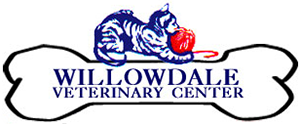Library
-
The Alaskan Malamute is the largest of all sled dogs, and has a somewhat wolf-like appearance. Friendly and outgoing with a distinct independent streak, the Malamute is a great companion and, like most working breeds, thrives when given a job to do.
-
Descendants of English Foxhounds brought to the US in the 17th century by George Washington and several of his contemporaries, American English Coonhounds were bred to handle North America's rougher terrain. A dual-purpose dog, they were employed to hunt fox during the day and raccoons at night, using their endless energy and enthusiastic bawl.
-
The American Eskimo Dog (Eskie to his friends) comes in the largest size range of any of the spitz dogs, from six-pound toy to 40-pound standard. Fun-loving and smart, this is one of the most companionable of spitz breeds.
-
The American Foxhound is a gentle, loving breed that does well in packs. If one dog is your limit, the humans in the family will have to be the pack. In other words, this breed does not do well isolated in the back yard, but must be part of a group. Several strains exist today, most kept by dedicated hunters.
-
The American Staffordshire Terrier, like the other bull terrier breeds, has a reputation as a fighting dog. But with the exception of those that have been poorly socialized or trained to fight, the American Staffordshire Terrier is a fine, affectionate canine companion who has been unfairly targeted by legislation aimed at outlawing the breed.
-
Energetic and playful, the American Water Spaniel loves kids and makes a great companion for active people. They enjoy investigating, running, hunting, fetching, and swimming. This sporting breed likes to keep moving and needs lots of exercise, but isn't as gregarious as more familiar spaniels like Springers and Brittanys.
-
Hailing from Turkey, the Anatolian Shepherd Dog was bred to guard livestock. The breed is not well-known outside of his native land, except to fanciers. Guarding instincts are highly developed and can be misplaced if owners are not aware of this.
-
A dog that does not want to eat, or is not eating, is a dog with a potentially life-threatening medical condition. Many conditions can lead to the inability of your dog to eat or lose his appetite completely. It is important to find the underlying cause so that an appropriate treatment plan can be created. Appetite stimulants may be prescribed, and in some cases, a feeding tube may be placed by your veterinarian. Decreased food intake or any change in eating habits warrants investigation by your veterinarian.
-
Topical ear medications are necessary to treat most ear conditions. This article provides step-by-step instructions on how to apply ear medications along with precautions.
-
Applying eye ointments to your dog's eye(s) can be a challenging or easy task. The proper administration of eye medications is essential for your dog’s prompt recovery. It is important to use the medication as directed for the full duration and contact your veterinarian if you have problems. The tips and instructions in this handout may make administering your dog’s eye ointment easier.
